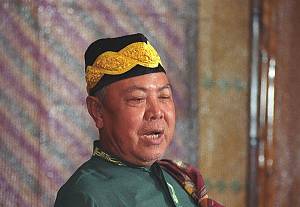Between 2003 and 2004 the Subanen community in Western Mindanao in the Philippines undertook innovative documentation of their indigenous knowledge about the plants found in their ancestral domain. The plants are valuable to them for their medicinal, agricultural, economic, and religious uses.

© Renato S. Rastrollo / NCCA -ICH /UNESCO
Plant diversity in the region is declining due to population pressure and climatic changes. Elders recognized that as plant diversity dwindles, knowledge about plants also declines. They also realized that as the younger generations are drawn into mainstream society, orally transmitted indigenous knowledge is no longer passed on to the next generation, and could eventually disappear forever.
The Subanen leaders sought assistance from specialized organizations to provide them with the skills to document this indigenous knowledge themselves, with external experts acting as facilitators. The non-literate but knowledgeable community elders provided the information, and younger literate community members assumed the role of documenters.
The resulting documentation was packaged into a multimedia format and other popular educational materials in English with Subanen translations. These materials were formally registered with the government copyright office, in order to guarantee the community’s intellectual property rights. The community’s education programme now uses them to teach schoolchildren about their culture; they are also used as curriculum material for adults who want to learn to read and write in their ancestral language.
This ‘self-documentation’ has turned out to be a successful way to preserve orally transmitted botanical knowledge and to make it available for present and future generations, contributing to the viability of this part of the Subanen’s intangible cultural heritage.